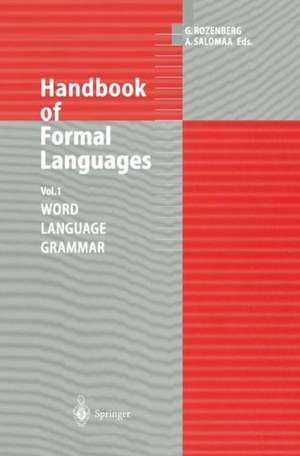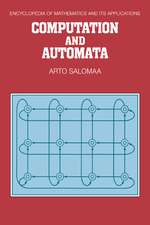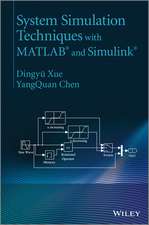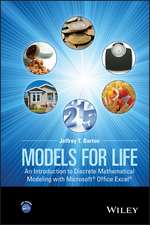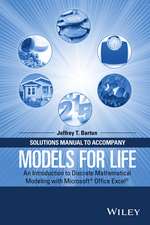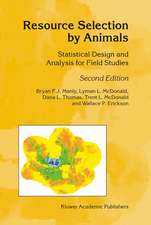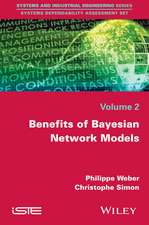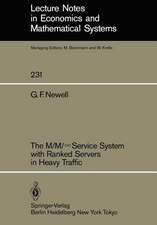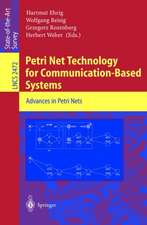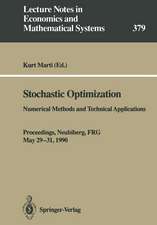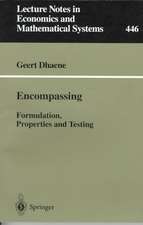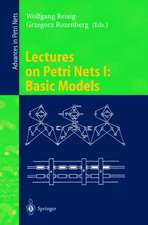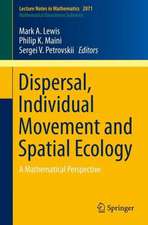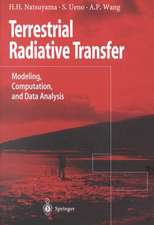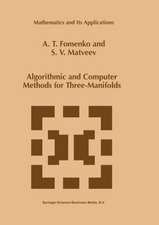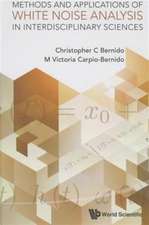Handbook of Formal Languages: Word, Language, Grammar
Editat de Grzegorz Rozenberg, Arto Salomaaen Limba Engleză Hardback – 31 mar 1997
| Toate formatele și edițiile | Preț | Express |
|---|---|---|
| Paperback (3) | 349.72 lei 6-8 săpt. | |
| Springer Berlin, Heidelberg – 29 oct 2012 | 349.72 lei 6-8 săpt. | |
| Springer Berlin, Heidelberg – 7 noi 2012 | 365.04 lei 6-8 săpt. | |
| Springer Berlin, Heidelberg – 8 dec 2010 | 1456.21 lei 6-8 săpt. | |
| Hardback (2) | 602.57 lei 6-8 săpt. | |
| Springer – 27 feb 1997 | 602.57 lei 6-8 săpt. | |
| Springer Berlin, Heidelberg – 28 feb 1997 | 1461.50 lei 6-8 săpt. |
Preț: 544.72 lei
Preț vechi: 640.85 lei
-15% Nou
Puncte Express: 817
Preț estimativ în valută:
104.24€ • 111.46$ • 86.91£
104.24€ • 111.46$ • 86.91£
Carte indisponibilă temporar
Doresc să fiu notificat când acest titlu va fi disponibil:
Se trimite...
Preluare comenzi: 021 569.72.76
Specificații
ISBN-13: 9783540604204
ISBN-10: 3540604200
Pagini: 873
Dimensiuni: 166 x 242 x 44 mm
Greutate: 1.47 kg
Editura: Springer Verlag
Colecția Springer Verlag
ISBN-10: 3540604200
Pagini: 873
Dimensiuni: 166 x 242 x 44 mm
Greutate: 1.47 kg
Editura: Springer Verlag
Colecția Springer Verlag
Descriere
This uniquely authoritative and comprehensive handbook is the first work to cover the vast field of formal languages, as well as their applications to the divergent areas of linguistics, dvelopmental biology, computer graphics, cryptology, molecular genetics, and programming languages. The work has been divided into three volumes.
Cuprins
of Volume 3.- 1. Tree Languages.- 1. Introduction.- 2. Trees and terms.- 3. Algebraic preliminaries.- 4. Term rewriting systems.- 5. Finite tree recognizers.- 6. Regular tree grammars.- 7. Tree language operations and closure properties of Rec.- 8. Local tree languages.- 9. A Kleene theorem for tree languages.- 10. Regular tree systems.- 11. Algebraic characterizations of recognizability.- 12. Monadic second-order logic and regular tree languages.- 13. Families of special regular tree languages.- 14. The yield-function and context-free languages.- 15. Context-free tree grammars and pushdown tree recognizers.- 16. Tree transformations and tree transducers.- 17. Composition and decomposition of tree transformations.- 18. Tree transducers with regular look-ahead.- 19. Generalized syntax directed translations.- 20. Surface tree languages.- 21. The hierarchies of surface tree languages and transformational languages.- 22. Some further topics.- References.- 2. Tree-Adjoining Grammars.- 1. Introduction.- 2. Tree-adjoining grammars.- 3. Lexicalized grammars.- 4. ‘Lexicalization’ of CFGs.- 5. Closure of TAGs under lexicalization.- 6. Summary of lexicalization.- 7. Embedded push-down automaton (EPDA).- 8. Linguistic relevance.- 9. Some variants of TAGs.- 10. Parsing lexicalized tree-adjoining grammars (LTAG).- 11 Summary.- References.- 3. Context-Free Graph Grammars.- 1. Introduction.- 2. Node and edge replacement.- 3. Hyperedge replacement grammars.- 4. Node replacement grammars.- 5. Monadic second order logic.- 6. Graph grammars generating strings and trees.- 7. Tree grammars generating graphs.- References.- 4. Two-Dimensional Languages.- 1. Introduction.- 2. Preliminaries.- 3. Regular expressions.- 4. Automata.- 5. Grammars.- 6. Logic formulas.- 7. Tiling systems.- 8.Equivalence theorems.- 9. Properties of recognizable languages.- 10. Recognizable functions.- 11. Beyond finite state recognizability.- References.- 5. Basics of Term Rewriting.- 1. Introduction.- 2. Terms.- 3. Church—Rosser properties.- 4. Orderings.- 5. Completion.- 6. Rewriting modulo a relation.- 7. Sundries.- References and further reading.- 6. ?-Languages.- 1. Introduction.- 2. Topology for languages and ?-languages.- 3. The Chomsky hierarchy of ?-languages.- 4. Languages and ?-languages.- 5. Wagner’s hierarchy.- References.- 7. Languages, Automata, and Logic.- 1. Introduction.- 2. Models and formulas.- 3. Automata and MSO-logic on finite words and trees.- 4. First-order definability.- 5. Automata and MSO-logic on infinite words.- 6. Automata and MSO-logic on infinite trees.- References.- 8. Partial Commutation and Traces.- 1. Introduction.- 2. Free partially commutative monoids.- 3. Combinatorial properties.- 4. Recognizable trace languages.- 5. Rational trace languages.- 6. Dependence graphs and logic.- 7. Asynchronous automata.- 8. Infinite traces.- References.- 9. Visual Models of Plant Development.- 1. Introduction.- 2. Developmental models of plant architecture.- 3. Formal description of branching structures.- 4. Fundamentals of modeling using L-systems.- 5. Random factors in development.- 6. Life, death, and reproduction.- 7. Development controlled by endogenous mechanisms.- 8. Development controlled by exogenous mechanisms.- 9. Conclusions.- 10. Acknowledgements.- References.- 10. Digital Images and Formal Languages.- 1. Introduction.- 2. Black and white images and finite automata.- 3. Grayscale images and WFA.- 4. Weighted finite transducers.- 5. Examples of WFT.- References.
Caracteristici
Includes supplementary material: sn.pub/extras
